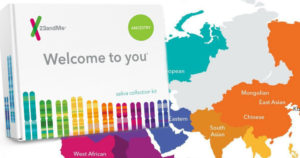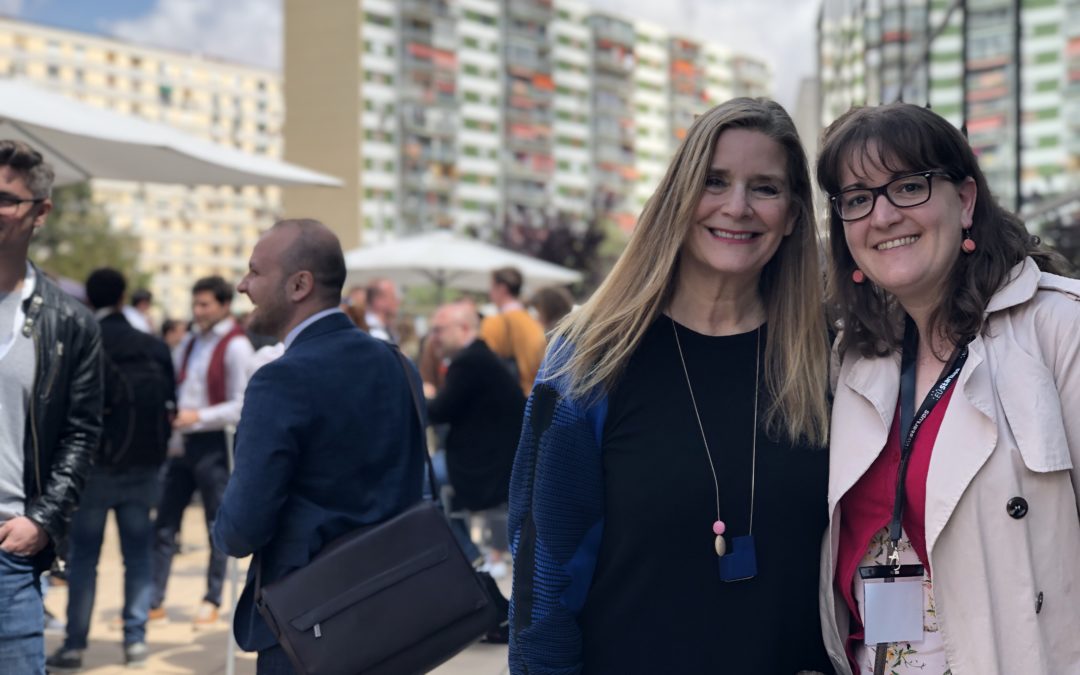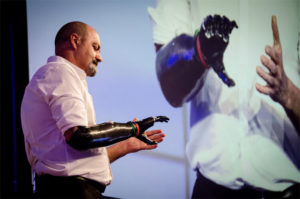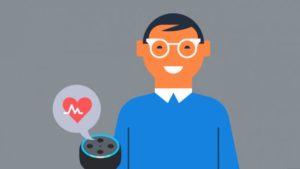Aline Noizet is passionate about digital health innovation, connecting the right people, improving patients’ lives, supporting healthcare professionals, and helping healthcare startups scale up. She has a special knack for business development, innovation & trend scouting, and building community.
Today, Aline is working on projects like eHealth Hub, involving innovation and startups. She is also a Consultant at Braincats, Health Expert for the Startup Colors team, and Ambassador for Digital Health Today and FTR4H. In her free time, she serves as the General Manager of Health 2.0 España.
Aline first met Beth during the Health 2.0 Annual Investors Forum, through a recommendation by Dr. Klaus Stöckemann of Peppermint Ventures. We caught up with Aline at the EU-Startups Summit last month, and asked her to share her insights with our community.
1. Digital Health is clearly your passion – what drew you to it?
Healthcare and digital health were not a career I considered early on. I’m from a family of farmers, and started off working in post sales for an automotive company helping men fix their trucks! It was great, but I needed a change.
During my MBA, I joined Frederic Llordachs’ company, Doctoralia, a digital health startup for booking medical appointments online. We were a staff of just 4 at the time, my role was to develop their activities outside of Spain.
My first day of work was at a conference in Madrid where 100 physicians, nurses and bloggers shared best practices in social media and medical blogs, and startups were showcasing digital health solutions. It was mind-blowing.
I fell in love with that environment and everyone’s desire to make a difference for patients and improve the healthcare system through technology and innovation. Frederic and I then started Health 2.0 Barcelona, uniting these passionate innovators and entrepreneurs during regular networking meetings.

2. What was your experience at Singularity University, and how has that influenced your work?
In 2014, I attended Exponential Medicine (xMed), Singularity University’s healthcare-focused conference — an accelerated crash course on exponential technologies applied to healthcare, such as genomics, microbiome, 3D (bio)printing, stem cells, robotics, etc. It was life-changing.
Attending xMed opened my eyes to the influence of technology on our health and wellbeing. Listening to Nigel Ackland talk about his bionic arm and how it brought him back to life; witnessing the power of 3D printing to reconstruct the skull of a child born with a severe debilitating deformation or to train on a tumor before successfully operating on it; discovering the power of stem cells or hearing advances in neuroscience—I was fascinated.
Those 4 days at xMed in San Diego altered my perspective on life, and defined my interest in the sector. Learning about microbiome and genomics deepened my understanding of my own body. The faculty and the attendees I met were so smart and knowledgeable—many continue to be friends. The whole experience pushed me to become a better version of myself.
From that point on, I focused even more on helping digital health startups get enough visibility and support to bring their technological solutions to market.

3. In your view, how has the EU’s innovation ecosystem for digital health evolved over the last 7 years?
I don’t think we could really talk about an ecosystem 7 years ago, but things have changed. We’ve seen a clear evolution during the Health 2.0 Europe conferences, especially in our attendee profiles:
- Patients are now key players
- Pharma companies have turned to digital during the past 5 years, launching innovative programs with tech startups
- Hospitals are piloting and implementing digital solutions
- More money has been put into digital health startups, dedicated funds have been created across Europe, and the first European digital health unicorn was born a few months ago
We have witnessed a consolidation of the ecosystem year after year.
I still remember in 2013 when Fitbit flex launched. It was a big deal. The next year, more trackers were on the market and more data was being collected. But what to do with all that data?
Companies started aggregating and analysing the data, and feeding it back to healthcare professionals and patients, to make more informed decisions. The regulatory framework and GDPR rules were created to ensure data privacy.
The development of this ecosystem owes its thanks, in part, to support from programs such as the European Commission’s H2020, and projects like eHealth Hub and EIT Health, focused on helping startups develop solutions, helping hospitals pilot and implement solutions, and facilitating connections between the different players in the European digital health ecosystem.
Another disruption came when big players like Apple, Google, Amazon and Facebook entered this space. Within a year, they had all appointed health directors to lead their health activities. Amazon launched their own tracker devices in 2018; their Comprehend Medical data analytics platform; and the acquisition of Pillpack, an online pharmacy delivering medicine to your door.
4. What are some of the most exciting trends you see happening in digital health today?
Voice and AI solutions are getting more and more interesting.
Although they have been around for over 15 years, they’re relevance has grown with the emergence of HIPAA compliant Amazon Alexa devices, the evolution of AI, and the precision of the algorithms.
We organised a session about the power of voice and AI during SXSW this year, where we discussed how it can support healthcare professionals with documentation or by taking away repetitive tasks. It can also support patients at home with virtual assistance and medication adherence.
Another very interesting application is the interpretation of sounds to establish a new way of communicating with babies or people who can’t talk anymore.
Digital Therapeutics (DTx) is crucial in the context of the opioid crisis and need to reduce our dependence on medicine.
DTx are technology-based solutions that can replace or complement medicine or traditional treatments. Some examples:
- HypnoVR is a VR-based solution used by anaesthetists to relax patients before an operation or reduce pain post operation, through a mix of images and sounds. Less anaesthetic is injected and the patient can leave the hospital sooner.
- Kaia is a multimodal therapy used for back pain and other chronic diseases, blending physical exercises, education and relaxation.
The advantage of DTx is that they are available 24/7 and more health insurance companies are recommending and reimbursing them.

The ecosystem is advancing as a result of collaborations that lift previous limitations.
- Otsuka and Click Therapeutics develop a solution for major depressive disorders using cognitive therapy principles
- Novartis and Tilak support patients with chronic ocular diseases through medical video games
- GSK and 23andme develop drugs based on patient’s genomic profile
- Oracle Insurance and Dacadoo help customers to reduce their insurance costs by taking better care of their health
- Amazon, JP Morgan and Berkshire Hathaway partner to improve care and cut costs in the US
- Merck, Accenture and Amazon launch a data-driven development platform
Join us again soon for Part II of our interview with Aline, which will explore innovating in a startup vs. corporate environment, and where digital health SMEs can find the support they need. Connect with Aline on LinkedIn, Twitter, and by following her blog in Digital Health Today.









